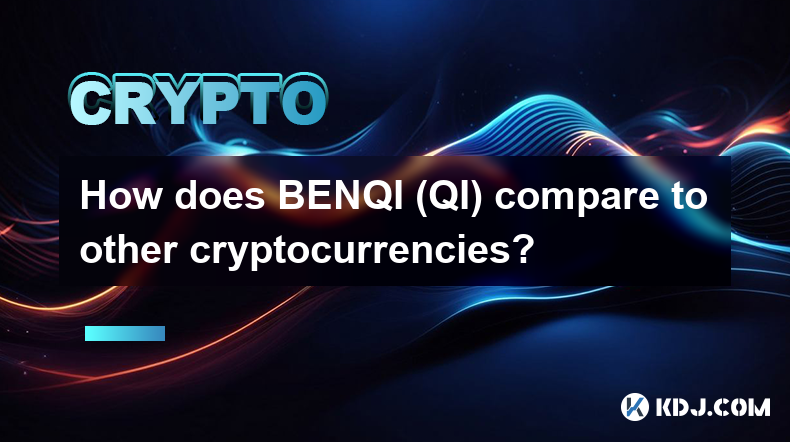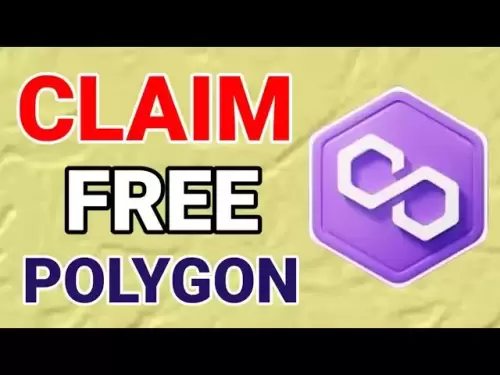-
 Bitcoin
Bitcoin $106,754.6083
1.33% -
 Ethereum
Ethereum $2,625.8249
3.80% -
 Tether USDt
Tether USDt $1.0001
-0.03% -
 XRP
XRP $2.1891
1.67% -
 BNB
BNB $654.5220
0.66% -
 Solana
Solana $156.9428
7.28% -
 USDC
USDC $0.9998
0.00% -
 Dogecoin
Dogecoin $0.1780
1.14% -
 TRON
TRON $0.2706
-0.16% -
 Cardano
Cardano $0.6470
2.77% -
 Hyperliquid
Hyperliquid $44.6467
10.24% -
 Sui
Sui $3.1128
3.86% -
 Bitcoin Cash
Bitcoin Cash $455.7646
3.00% -
 Chainlink
Chainlink $13.6858
4.08% -
 UNUS SED LEO
UNUS SED LEO $9.2682
0.21% -
 Avalanche
Avalanche $19.7433
3.79% -
 Stellar
Stellar $0.2616
1.64% -
 Toncoin
Toncoin $3.0222
2.19% -
 Shiba Inu
Shiba Inu $0.0...01220
1.49% -
 Hedera
Hedera $0.1580
2.75% -
 Litecoin
Litecoin $87.4964
2.29% -
 Polkadot
Polkadot $3.8958
3.05% -
 Ethena USDe
Ethena USDe $1.0000
-0.04% -
 Monero
Monero $317.2263
0.26% -
 Bitget Token
Bitget Token $4.5985
1.68% -
 Dai
Dai $0.9999
0.00% -
 Pepe
Pepe $0.0...01140
2.44% -
 Uniswap
Uniswap $7.6065
5.29% -
 Pi
Pi $0.6042
-2.00% -
 Aave
Aave $289.6343
6.02%
How does BENQI (QI) compare to other cryptocurrencies?
BENQI's competitive edge lies in optimizing Avalanche's scalability, employing AMM-based lending, implementing a robust risk management framework, and embracing future-oriented development, offering high returns and user-friendliness.
Dec 24, 2024 at 05:43 am

Key Points:
- BENQI's market ranking and ecosystem comparison
- Key differences between BENQI and other DeFi protocols
- Value proposition and competitive advantages of BENQI
How does BENQI compare to other DeFi protocols?
Ranking and Market Share
In terms of market capitalization, BENQI ranks among the top decentralized finance (DeFi) protocols, hovering around the top 30 at the time of writing. However, it is important to note that market rankings can be volatile and influenced by factors such as market sentiment and token price fluctuations.
Ecosystem Development
BENQI has a rapidly growing ecosystem with a significant user base and strong community support. It has established partnerships with key players in the cryptocurrency industry, including lending partners, yield aggregators, and project launchers. The platform offers a range of products and services, including lending, borrowing, liquidity provision, and yield farming.
Key Differentiators
Several key aspects set BENQI apart from other DeFi protocols:
- Optimized for Avalanche Blockchain: BENQI is specifically designed for the Avalanche blockchain, taking advantage of its high scalability and low transaction costs. This allows it to offer competitive interest rates and efficient execution of financial transactions.
- AMM-Based Lending: Unlike traditional lending protocols that rely on order books, BENQI utilizes an automated market maker (AMM) model for its lending mechanism. This allows for more efficient capital utilization and smoother price discovery.
- Risk Management Framework: BENQI employs a comprehensive risk management framework to mitigate potential risks and protect user funds. It includes mechanisms such as dynamic interest rate adjustments, loan-to-value (LTV) ratios, and smart contract security audits.
- Future-Oriented Development: The BENQI team is actively involved in shaping the future of DeFi. It has implemented innovative features such as tokenized staking, cross-chain lending, and yield aggregators. The protocol is continuously seeking ways to enhance its offerings and meet the evolving needs of the DeFi ecosystem.
Value Proposition and Competitive Advantages
BENQI's value proposition lies in its combination of high returns, scalability, and user-friendliness. By optimizing for the Avalanche blockchain and employing an AMM-based lending model, it provides users with competitive interest rates, fast transaction execution, and minimal slippage.
Additionally, BENQI's risk management framework enhances security and trust, while its constant innovation and future-oriented approach cater to the evolving needs of the DeFi market.
FAQs
Q: What sets BENQI apart from other DeFi protocols?
A: BENQI leverages the Avalanche blockchain's scalability, employs an AMM-based lending model, and has a robust risk management framework. It also embraces future-oriented development, offering innovative features and continuously enhancing its offerings.
Q: How does BENQI's ranking compare to other DeFi protocols?
A: BENQI consistently ranks among the top 30 DeFi protocols in terms of market capitalization, indicating its strong market position and significant user base.
Q: What are the potential risks associated with using BENQI?
A: Like any DeFi protocol, BENQI carries certain risks, including market volatility, smart contract bugs, and the potential for hacks or exploits. However, BENQI employs a comprehensive risk management framework to mitigate these risks and protect user funds.
Disclaimer:info@kdj.com
The information provided is not trading advice. kdj.com does not assume any responsibility for any investments made based on the information provided in this article. Cryptocurrencies are highly volatile and it is highly recommended that you invest with caution after thorough research!
If you believe that the content used on this website infringes your copyright, please contact us immediately (info@kdj.com) and we will delete it promptly.
- Ruvi AI: The Audited Token Challenging Avalanche Forecasts
- 2025-06-20 06:25:12
- Lion Group, Crypto Treasury, and HYPE Token: A New Era in Digital Finance?
- 2025-06-20 06:25:12
- Kraken's Bitcoin Staking Revolution: Unlocking BTCFi Utility with Babylon
- 2025-06-20 06:30:12
- Arctic Pablo's Presale Milestone: The Meme Coin That's More Than a Meme
- 2025-06-20 06:45:12
- Arctic Pablo: The Meme Coin Presale Redefining Crypto Hype
- 2025-06-20 06:45:12
- Bitcoin's Brave New World: Beyond Halving Cycles and Into a Super Cycle?
- 2025-06-20 06:50:12
Related knowledge

How to customize USDT TRC20 mining fees? Flexible adjustment tutorial
Jun 13,2025 at 01:42am
Understanding USDT TRC20 Mining FeesMining fees on the TRON (TRC20) network are essential for processing transactions. Unlike Bitcoin or Ethereum, where miners directly validate transactions, TRON uses a delegated proof-of-stake (DPoS) mechanism. However, users still need to pay bandwidth and energy fees, which are collectively referred to as 'mining fe...

USDT TRC20 transaction is stuck? Solution summary
Jun 14,2025 at 11:15pm
Understanding USDT TRC20 TransactionsWhen users mention that a USDT TRC20 transaction is stuck, they typically refer to a situation where the transfer of Tether (USDT) on the TRON blockchain has not been confirmed for an extended period. This issue may arise due to various reasons such as network congestion, insufficient transaction fees, or wallet-rela...

How to cancel USDT TRC20 unconfirmed transactions? Operation guide
Jun 13,2025 at 11:01pm
Understanding USDT TRC20 Unconfirmed TransactionsWhen dealing with USDT TRC20 transactions, it’s crucial to understand what an unconfirmed transaction means. An unconfirmed transaction is one that has been broadcasted to the blockchain network but hasn’t yet been included in a block. This typically occurs due to low transaction fees or network congestio...

What to do if USDT TRC20 transfers are congested? Speed up trading skills
Jun 13,2025 at 09:56am
Understanding USDT TRC20 Transfer CongestionWhen transferring USDT TRC20, users may occasionally experience delays or congestion. This typically occurs due to network overload on the TRON blockchain, which hosts the TRC20 version of Tether. Unlike the ERC20 variant (which runs on Ethereum), TRC20 transactions are generally faster and cheaper, but during...

The relationship between USDT TRC20 and TRON chain: technical background analysis
Jun 12,2025 at 01:28pm
What is USDT TRC20?USDT TRC20 refers to the Tether (USDT) token issued on the TRON blockchain using the TRC-20 standard. Unlike the more commonly known ERC-20 version of USDT (which runs on Ethereum), the TRC-20 variant leverages the TRON network's infrastructure for faster and cheaper transactions. The emergence of this version came as part of Tether’s...

How to monitor large USDT TRC20 transfers? Tracking tool recommendation
Jun 12,2025 at 06:49pm
Understanding USDT TRC20 TransfersTether (USDT) is one of the most widely used stablecoins in the cryptocurrency ecosystem. It exists on multiple blockchains, including TRON (TRC20). The TRC20 version of USDT operates on the TRON network and offers faster transaction speeds and lower fees compared to its ERC-20 counterpart on Ethereum. When discussing l...

How to customize USDT TRC20 mining fees? Flexible adjustment tutorial
Jun 13,2025 at 01:42am
Understanding USDT TRC20 Mining FeesMining fees on the TRON (TRC20) network are essential for processing transactions. Unlike Bitcoin or Ethereum, where miners directly validate transactions, TRON uses a delegated proof-of-stake (DPoS) mechanism. However, users still need to pay bandwidth and energy fees, which are collectively referred to as 'mining fe...

USDT TRC20 transaction is stuck? Solution summary
Jun 14,2025 at 11:15pm
Understanding USDT TRC20 TransactionsWhen users mention that a USDT TRC20 transaction is stuck, they typically refer to a situation where the transfer of Tether (USDT) on the TRON blockchain has not been confirmed for an extended period. This issue may arise due to various reasons such as network congestion, insufficient transaction fees, or wallet-rela...

How to cancel USDT TRC20 unconfirmed transactions? Operation guide
Jun 13,2025 at 11:01pm
Understanding USDT TRC20 Unconfirmed TransactionsWhen dealing with USDT TRC20 transactions, it’s crucial to understand what an unconfirmed transaction means. An unconfirmed transaction is one that has been broadcasted to the blockchain network but hasn’t yet been included in a block. This typically occurs due to low transaction fees or network congestio...

What to do if USDT TRC20 transfers are congested? Speed up trading skills
Jun 13,2025 at 09:56am
Understanding USDT TRC20 Transfer CongestionWhen transferring USDT TRC20, users may occasionally experience delays or congestion. This typically occurs due to network overload on the TRON blockchain, which hosts the TRC20 version of Tether. Unlike the ERC20 variant (which runs on Ethereum), TRC20 transactions are generally faster and cheaper, but during...

The relationship between USDT TRC20 and TRON chain: technical background analysis
Jun 12,2025 at 01:28pm
What is USDT TRC20?USDT TRC20 refers to the Tether (USDT) token issued on the TRON blockchain using the TRC-20 standard. Unlike the more commonly known ERC-20 version of USDT (which runs on Ethereum), the TRC-20 variant leverages the TRON network's infrastructure for faster and cheaper transactions. The emergence of this version came as part of Tether’s...

How to monitor large USDT TRC20 transfers? Tracking tool recommendation
Jun 12,2025 at 06:49pm
Understanding USDT TRC20 TransfersTether (USDT) is one of the most widely used stablecoins in the cryptocurrency ecosystem. It exists on multiple blockchains, including TRON (TRC20). The TRC20 version of USDT operates on the TRON network and offers faster transaction speeds and lower fees compared to its ERC-20 counterpart on Ethereum. When discussing l...
See all articles

























































































